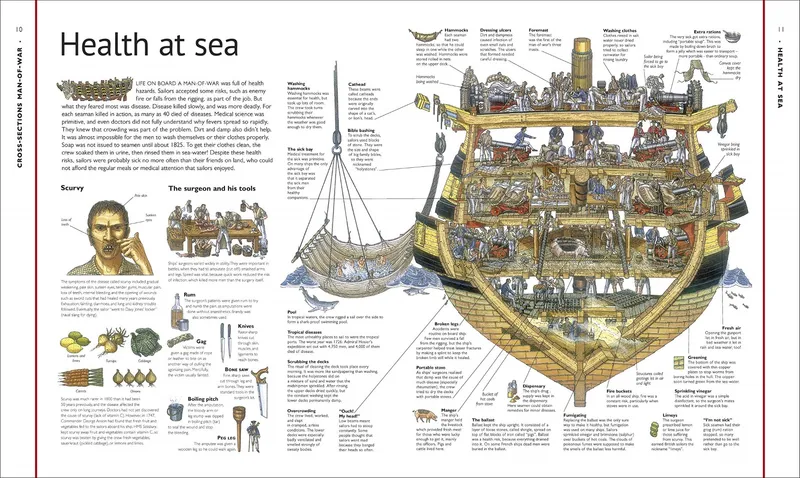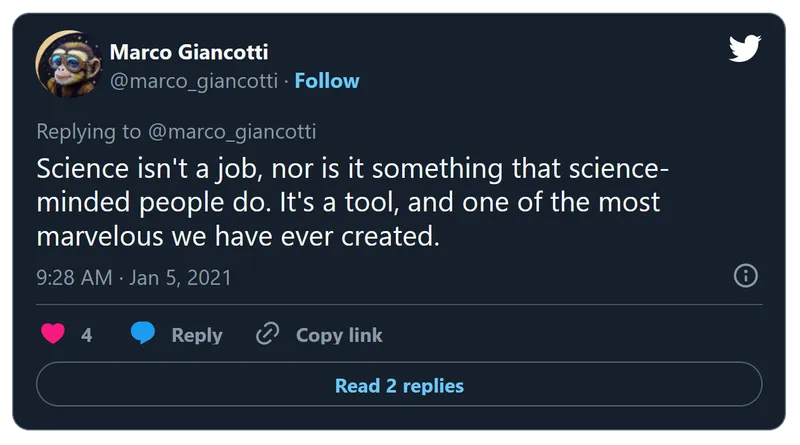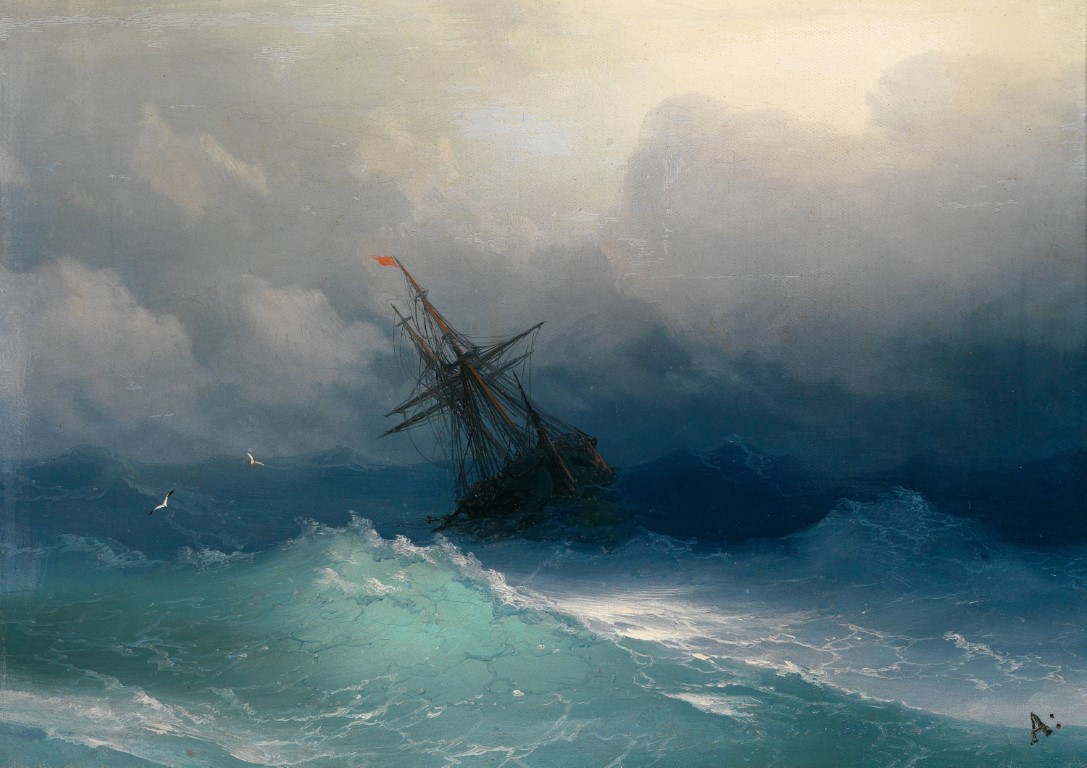Seamanship of Life
Aye, pass that razor hither, me hearty!
Marco Giancotti,

Marco Giancotti,
Cover image:
Ship on Stormy Seas, Ivan Aivazovski
I originally published this on February 17, 2023 on Plankton Valhalla. I'm moving it here because it fits in with Aether Mug's happy chaos of ideas better. Back then the number of readers was a small fraction of today's, so hopefully it's not a repetition for most.
There is a sense, in today's society, that things are getting out of control. The world is becoming too much for us to handle. Too complex, too fast, too fake, too inhuman. Leaders and academics tell us that we are in a VUCA (Volatile, Uncertain, Complex, Ambiguous) world and sprinkle their speeches with the word "unprecedented". We're clueless about the future, and clueless about how clueless we are, they say, and might slip off the tip of the hockey stick at any moment now. Others are less pessimistic, arguing that the world is great and getting better and better. Apparently, everyone has been saying that things are getting worse since prehistory—that's just something people do—so don't worry about them.
The debate rages on and I doubt it will ever stop. Is the world is really getting worse? I don't know. Trying to settle whether we are living in heaven or hell may be a compelling pastime, but it's not very useful. I'll leave that kind of discourse to those who enjoy it. To me the interesting bit is the present situation, and what we can do about it now.
No doubt, we're living in a lot of uncertainty, and the world is indeed extraordinarily complex. We are pretty clueless, both as a species and as individuals, and it's us individuals who need to cope with it. When I think about how to cope, as a human, with this Great Confusion, I can't help but think about sailing.
I've been lucky enough to be born in the middle of the Mediterranean Sea. Since my pre-school years, my father took our family on yearly weeks-long sailboat trips around that warm, gentle embrace of a sea. For weeks at a time, we lived afloat, waves rocking us more or less gently at every waking and sleeping moment. My siblings and I grew up with the intuitive sense of what it means to be—literally—in a volatile, uncertain, complex, and ambiguous environment. We were at the mercy of unpredictable weather. One step in the wrong direction and we would fall overboard, into a fathomless expanse of wet ambiguity. We knew that beneath us were natural phenomena and creatures that we would never be able to see fully, let alone understand. On board were several people, sometimes unfamiliar to each other, crammed into very tight quarters, 24/7. The resulting social dynamics were not always easy to navigate either. We lived on an artificial sliver of partial stability in a veritable sea of chaos, and there was only so much we could do to determine our immediate fates.
Thinking about it now, living on a sailboat is an exceedingly good metaphor for our experience of living in this modern world.
Like long-distance voyagers, we're all cast out into a whimsical and ruthless environment with no land in sight. We regularly face the limits of our power to control our lives. Some things we just can't predict. Some waves make us sick. Every now and then a metaphorical storm hits us, and we get soaked, and go off course, and sometimes we don't make it, or our loved ones don't make it. Similar to how a ship's crew can only get somewhere if they agree to collaborate in one way or another, so do we earthlings benefit from joining our forces without conflict.

Let me step up the metaphor here. All things considered, even with all the uncertainty, modern leisure sailboats are very safe and relatively comfortable. But this metaphor holds just as well for more extreme instances of sea life. In what follows, I'll use the example of the navigators of old, when ships were made of wood, mechanical engines didn't exist, and life was way harder than now on almost all possible fronts. That was a crazy kind of life!
Now, if we're figurative sailors in an ocean of social, economic, and environmental complexity, we're not very good ones. Listening to the public discourse, it seems like we're much more confused and bitter than the average sailor was at sea. We're more hysterical about our situation than the members of, say, the British or Portuguese navies in the early 1500's, who were quite adept at their profession. Those voyagers must have been doing something right to fare so well in such a life-threatening world. We might as well try to figure out what it was, for our own sake.
Since before history began, human beings have left the green hills and solid ground of the mainland to spend their days riding the tides. They abandoned the comfort and certainties of land and surrendered themselves to the forces of nature, forever squeezed in that thin boundary layer that separates the atmosphere from the abyss. Nevertheless, they thrived. They managed to populate the remotest of islands, to introduce the goods of one continent to the people of another, to tell a thousand stories about worlds defying the imagination. They mapped the world.
It's true that a lot of those seafarers were eaten by the fish. Many of them suffered greatly with their bodies and minds. We'll never know the number of those who cursed such a life, wondering why they didn't choose to grow pumpkins in the country instead. In the words of Ralph Waldo Emerson, "the wonder is always new that any sane man can be a sailor."
I think that means that it takes a peculiar state of mind to live a sailor's life:
Lulled into such an opium-like listlessness of vacant, unconscious reverie is this absent-minded youth by the blending cadence of waves with thoughts, that at last he loses his identity; takes the mystic ocean at his feet for the visible image of that deep, blue, bottomless soul, pervading mankind and nature; and every strange, half-seen, gliding, beautiful thing that eludes him; every dimly-discovered, uprising fin of some undiscernible form, seems to him the embodiment of those elusive thoughts that only people the soul by continually flitting through it. In this enchanted mood, thy spirit ebbs away to whence it came; becomes diffused through time and space […] There is no life in thee, now, except that rocking life imparted by a gently rolling ship; by her, borrowed from the sea; by the sea, from the inscrutable tides of God.
— Herman Melville, Moby Dick (Ch. 35)
The majority of sailors chose that hard life consciously and repeatedly. Perhaps it was because they had no other option, or because they were addicted to that state of opium-like listlessness. Hard to tell. But it's not very much unlike our own modern predicament, where we seek to live our lives as fully as we can, in spite of all the hardships it bears us.
If the people living in one of the most extreme VUCA environments on Earth can become attuned to it, it stands to reason that we should be able to do that with our lives too. The key difference is that while the challenges of the sea are usually visible and even tangible, our modern city life throws at us a more abstract kind of waves.
What can we, caught in the storms of our metaphorical life/sea, learn from the nautical art of living a literal sea-life?
I'll try to answer that with a simple observation. As you might expect, the mariners of old needed both know-how and determination. There was no secret ingredient, no amazing ritual or formula that a sailor could use to overcome their crushing cluelessness at sea. And that's the point: no tricks, just raw, patient absorption of what the environment had to teach them.
It goes without saying that every sailor knew a lot about ships and the sea. They had to master a vast vocabulary unique to that space, and know how to handle hundreds of tools and solve thousands of problems quickly and effectively. But the know-how of a sailor was that of a manual laborer, not a knowledge worker or a theoretician. They didn't learn their profession in classrooms or by thinking about it, but through months and years of direct, practical trial and error, an endless sequence of physical manipulations, attempts, setbacks, injuries, and firsthand observations.
They started learning how to tie knots the moment a rope was put in their hands. The sails and yards and riggings became extensions of their bodies, the wind became a language that spoke to them, and the sky a book they could read, more often than not. It was a know-how molded in intuition, not intellect.
Beyond their practical skills, seafarers had a striking sort of determination. They spent grueling months shaken by the tides, half-starving on tasteless, rotten food, assaulted by disease, crammed in shared quarters like sardines. They never knew exactly where in the world they where, not to mention when they would reach their next destination. Yet again and again, after enjoying the safety and predictability of a harbor, they would step back onto that wooden world of chaos.
I find the Japanese word kakugo (覚悟) to be more accurate than "determination" here. Kakugo means, quite literally, being aware of, or awakened to, the harshness of reality; knowing the worst that could happen, and choosing to take the risk anyway. Sailors had (and probably have today) kakugo to sell, because there's no hiding from the worst of the ocean: it will come for you.
But we're not talking about saints or even notoriously sage people. These were some of the least-educated and most alcohol-indulging groups of people of their time. Their wisdom was not of the sublime kind sought by Socrates or the Buddha. As far as I can tell, sailors were "awakened" to reality not by meditation or deep reflection, but by love and necessity. They saw something in that floating existence that they couldn't resist and, in exchange for that, they were forced to keep their eyes wide open in front of its terrifying realities.
Fast forward to our own lives today. Our sea is made of social interactions rather than water; wars, economic ups-and-downs, and cultural clashes constitute our weather; and technology has become—like it or not—the vessel we use to stay afloat. To thrive in such a world we need something analogous to that raw, no-frills know-how and kakugo mastered by the sailors of old.
This is why we need science now more than ever. Science is the only area of knowledge, outside of handiwork, that is empirically created by interacting with reality. Humanity creates advanced scientific knowledge with the same trial-and-error process that a deck hand went through during their apprenticeship. Science is the seamanship of life.
Just as a 16th-century seafarer needed a visceral knowledge of their environment and an intimate proficiency with their tools in order to survive and prosper, so we need a scientific intuition of the world and a boxful of mental tools to handle. Just as the sailor prospered thanks to their keen awareness of the limits of their powers, so should we all be versed in the scientific expression of error, chaos, and nonlinearity.
Nowadays, the usual reaction to a crisis or an unexpected downturn is the formation of two groups, one claiming that we're all going to die, the other that everything will be even better than before. That's not what seamen did when uncertainty ran rampant: refusing to acknowledge the destructive power of a storm may doom the whole crew to death, and screaming in panic isn't going to make things better either. There's a—possibly apocryphal—quote by Joseph Conrad saying, "any fool can carry on, but a wise man knows how to shorten sail in time." Wise sailors kept their cool, loosened the sails, and remained alert to whatever the winds were going to throw at them.

Few people today would disagree that humanity, as a whole, needs science more than ever, but what about at the level of the individual? You and me, we're sailors too. Do we know, in our day-to-day, how to read the stars and interpret the winds? Do we know what to do when an emergency strikes? Will we be able to communicate with the sailors on distant ships and read their flag signals when they appear on the horizon? Science gives us the best tools to (try to) accomplish all those things.
To be clear, this isn't about the academic knowledge of science. School teaches us to memorize scientific facts and methods, which is equivalent to showing us maps and descriptions of ship maneuvers. That approach has an important place—it's how scientists do most of their work. But it's not necessary for the kind of day-to-day sense-making that we're in dire need of. Here I'm talking about the multi-disciplinary science that every single human being—scientists or not!—needs to stay afloat in this world. We only need a subset of science to do well in our lives, a subset that schools aren't teaching us yet.
To be like inveterate mariners, we especially need a rough kind of knowledge, rooted in direct experience and working mostly on the strength of intuition. That's a pragmatic side of science, less preoccupied with ultimate truths about the infinitely big and small, and more involved in answering questions like "what the hell does that mean for me?" and "what should I do right now?". It's science, yes, but of a kind made with the same dough as wisdom.
For example, the scientific concept of systems is simple enough, but it's a powerful thinking tool to see things in a more objective light. It helps you frame puzzling things like economies, companies, and social groups as systems with specific dynamics, tendencies, and leverage points. This lets you shift your focus away from the confusion and frustration, and towards what you can or can't actually do to grok and affect those systems. Plus, it's a good stepping stone to more sophisticated tools like network science, dynamical systems, and emergence.
Know-how, remember, is only half of what makes a good sailor. The other half is the determination, the kakugo to accept all the ugliness and the pain and strain without running or hiding. Knot-making knowledge won't help you secure a sail if you refuse to climb the mast. Nowadays, this means being able to accept what you can't understand without judgement, and admitting that you make many more mistakes than you realize. Stare at your mistakes, fight them with science, and make peace with them.
Kakugo is also a form of humility: stay down to earth. Find what's really important, and don't burden yourself with more. Use Occam's Razor. “At sea, I learned how little a person needs, not how much.” (The guy who said that, Robin Lee Graham, set out to circumnavigate the world alone on a ship at the age of 16 and completed his trip five years later.)
That kind of science, and that kakugo, is all I really ever write about here. I (will) write essays about mathematics, but not for the sake of enjoying mathematics—that's a side effect. I (will) write essays about complexity, cell biology, management, and lots of other fields, always with the goal of distilling insights for our voyage through the turbulent expanses of life. I also craft new thinking tools (or refine existing ones), ideas like differences propagating through the universal network, glass circuits, trees of possibilities, and more. All with the intent of catalyzing that raw scientific intuition that I'm comparing to seamanship.
The tricky part is that this know-how can't really be taught. A good mariner is first of all a creature of intuitions, whose knowledge is not intellectual but practical, not rationalized but absorbed, and whose thinking rides more on the affordances of language than logic. While I can't be an instructor, I hope to be a sailmaker, or a carpenter, churning out nautical tools that may or may not turn out to be useful during navigation. I hope the reader will wield, rather than swallow, the ideas I offer, give them a spin at the next real-life opportunity to do so, and only keep them if they prove to serve any purpose. ●
Notes
- If you want to learn more about the harsh environmental, social, and mental conditions of sailors in the past, there's plenty of books about this, beyond Biesty's picture book I mentioned above. I especially recommend Over the Edge of the World: Magellan's Terrifying Circumnavigation of the Globe and The Bounty: The True Story of the Mutiny on the Bounty. Oh, and Moby Dick. Don't forget Moby Dick.
- Thinking in Systems: A Primer is the perfect book to get familiar with the concept of systems.
Cover image:
Ship on Stormy Seas, Ivan Aivazovski
